Petir: Agricultural Strategy Should Cover Status of Women in Rural Areas
ZAGREB, 8 March, 2021 - The chair of the Croatian Parliament Committee on Agriculture, Marijana Petir, has sent an initiative to the Minister of Agriculture to include activities aimed at improving the status of women in rural areas in the Agricultural Strategy and introduce a special sub-programme for women in rural areas.
Given that the Agricultural Strategy 2020-2030 is in the final stage of preparation, it is important for women in rural areas to be included in it in a separate section. That, in turn, would require preparation of an action plan that would deal with the status of women in rural areas, Petir said on the occasion of International Women's Day.
The plan would, among other things, address such important issues as the "invisible work" of farm women, access to land ownership, achieving economic independence, preventing the risk of poverty and unemployment, and increasing the representation of women in decision-making bodies.
Petir said that the national strategic plan, which is being developed, should include a special sub-programme for women in rural areas as provided for by the EU's common agricultural policy. Such a sub-programme could improve the status of women in rural areas, create jobs for them, help them in investing in physical assets, contribute to the development of farms and their operations, and ensure conditions for basic services and revitalisation of rural areas, she said.
"I hope that these activities will help improve the status of women in the rural areas of Croatia and that their irreplaceable role in sustaining the rural areas will start to be fairly evaluated," Petir said.
Almost HRK 7 Billion Paid To Farmers In Support In 2020
ZAGREB, 3 March, 2021 - Last year the Agriculture Ministry paid a total of HRK 6.99 billion in support for farmers, which is 20% or 1.16 billion more than in 2019.
In a press release on Wednesday, the ministry said that support paid in 2020 from EU finds amounted to HRK 5.5 billion which is 23% or 1.04 billion more than 2019 and the largest amount of EU funds paid out ever.
In 2020, just before Croatia's presidency of the Council of the EU ended, a regulation on support for rural development from the European Agriculture Fund for Rural Development was amended, enabling Measure 21 -"'Extraordinary temporary support for farmers and SMEs particularly affected by the crisis caused by the disease COVID-19," under which Croatian farmers were allocated an additional HRK 360 million.
Thanks partially to COVID measures, this year's wine envelope has the greatest absorption ever, by as much as 94% and about HRK 76 million was invested in the wine sector in 2020, the ministry said in its press release.
Amendments to the EU regulation on the European Maritime and Fisheries Fund, aimed at relieving the consequences of the COVID-19 pandemic, enabled measures amounting to HRK 180 million.
At the same time, HRK 3.04 billion was paid in direct payments to farmers last year, or HRK 121.34 million more than in 2019.
The ministry noted that money from the state budget is earmarked to finance national support programmes and in that regard HRK1.49 billion was paid out, which is 9% or HRK 121.47 million more than in 2019.
More Than 1,000 Tonnes of Fodder For Earthquake Areas
ZAGREB, 3 March, 2021 - The Ministry of Agriculture said on Wednesday that it had received more than a thousand tonnes of fodder for earthquake-hit areas and that more than 868 tonnes had been distributed to farmers, adding that it was in the process of procuring an additional 621 tonnes valued at HRK 1.5 million.
The ministry said in a press release that as of 1 March 1,012 tonnes of fodder had been received in warehouses in Petrinja and Glina and that more than 868 tonnes had been distributed through 3,627 individual donations.
The fodder was received through donations from 69 donors from all over Croatia.
The ministry advised that it is launching procedures for the procurement of an additional 621 tonnes of fodder valued a HRK 1.5 million which will ensure enough fodder for cattle in earthquake affected areas for one month's time.
Agriculture Minister Marija Vučković said that the ministry was endeavouring to secure all the necessary preconditions so that production doesn't stop in Banovina. In addition to providing fodder for animals, the ministry mediated in the temporary transfer of 306 head of cattle as well as selling 234 head at fair market prices.
She recalled that all animals in the area are eligible for free vaccination and veterinary treatment until 31 March. The expected cost of that measure amounts to HRK 10.5 million and it will be financed from the state budget.
Croatian Agriculture Has Shown Resilience, Says Minister
ZAGREB, 19 February, 2021 - Agriculture Minister Marija Vučković was visiting Vukovar-Srijem County on Friday, where she presented contracts on the co-financing of projects from the Rural Development Programme and said that Croatian agriculture has shown resilience.
Citing Croatian Bureau of Statistics estimates, she said in Vukovar that agricultural production grew by 7% or HRK 1.4 billion in 2020, the highest increase since 2008, while gross added value and factor and entrepreneurial incomes increased between 14 and 16%.
Those figures show that Croatian agriculture is not on a bad path, that domestic producers are resilient and creative, and that the Rural Development Programme is showing results, the minister said.
"We have to insist on economic programmes for farmland, on connecting everyone in the food production chain and on boosting the processing industry, which will then best stimulate primary agricultural production," Vučković said.
Without increasing productivity and competitiveness, Slavonia cannot become stronger, she said.
Speaking of a farmland bill, the minister said the government wished to debate it with everyone concerned. As our most valuable resource, farmland is worth much more than all the incentives we will receive from the EU, she added.
Responding to questions from the press, Vučković said the government and her ministry had done their best to boost the sugar industry in Croatia.
Young Croat Josip Popcevic Pioneers Preservation of Super-Pollinating Bees
January 25, 2021 – Croat Josip Popcevic has already decided to dedicate his young life to little-known solitary bees. The reason? They are super-pollinators - our very future could depend on them
Croatia is not unknowledgeable when it comes to bees. Beekeeping is a traditional part of rural life in Croatia. Indeed, Slavonian honey is protected at an EU-level and the honey of Istrian is in the process of requesting the same.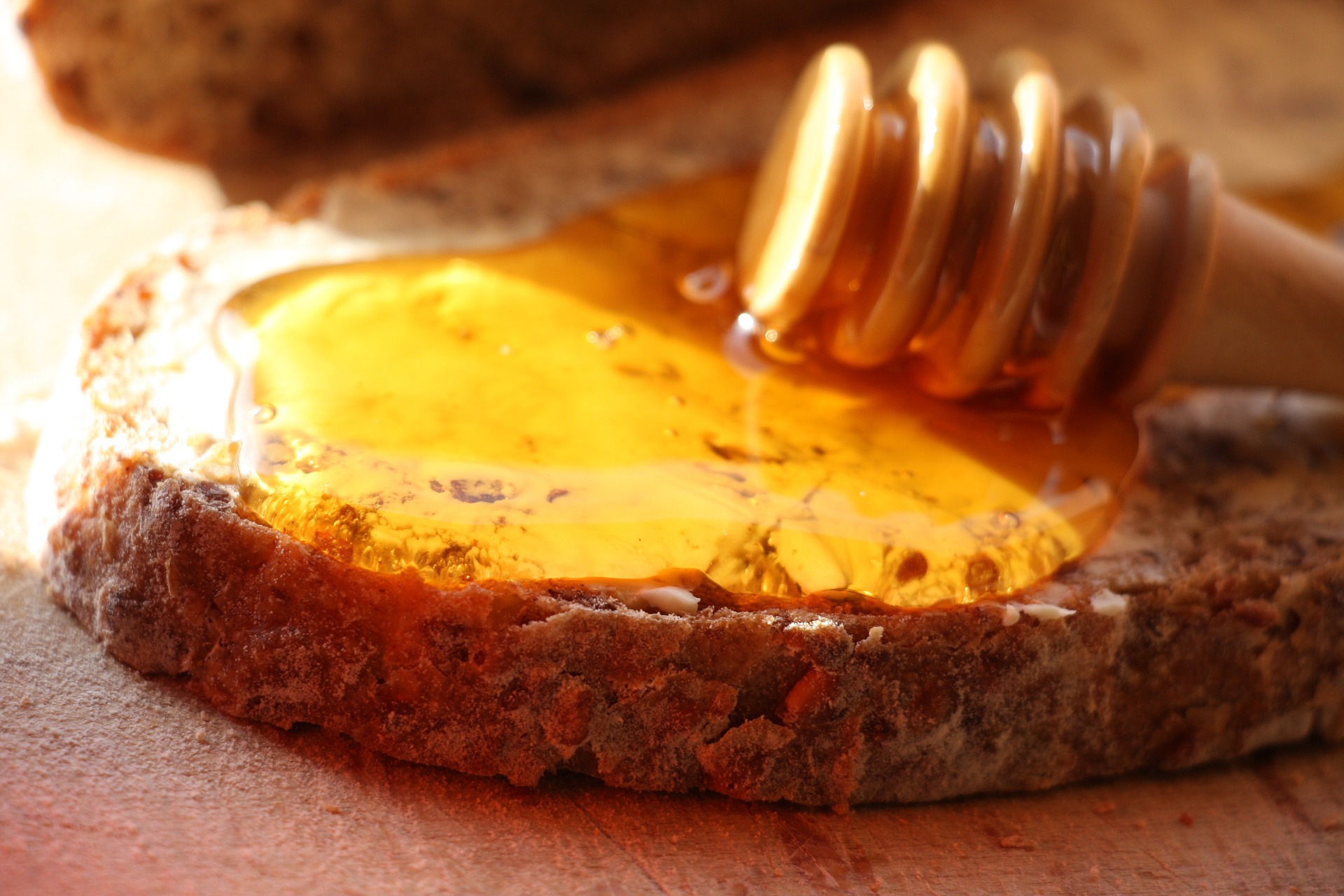 Croatian honey is renowned throughout the region. Slavonian honey is protected at an EU level
Croatian honey is renowned throughout the region. Slavonian honey is protected at an EU level
Vast tracts of land in Croatia are dedicated to successful agriculture. Here, too, the worth of bees is well known. Bees are known to pollinate upwards of 80% of all the crops we eat (pollination is how male and female plants reproduce and make seeds).
Garlic, parsley, apples, cherries, apricots, lemons, asparagus, pumpkin, cucumber, broccoli, courgette (zucchini), cabbage, carrots, cauliflower, aubergine (eggplant), watermelon, celery, kale, peppers and all berries are cultivated widely across Croatia, providing incomes, employment and food. The pollination of all of them relies on bees.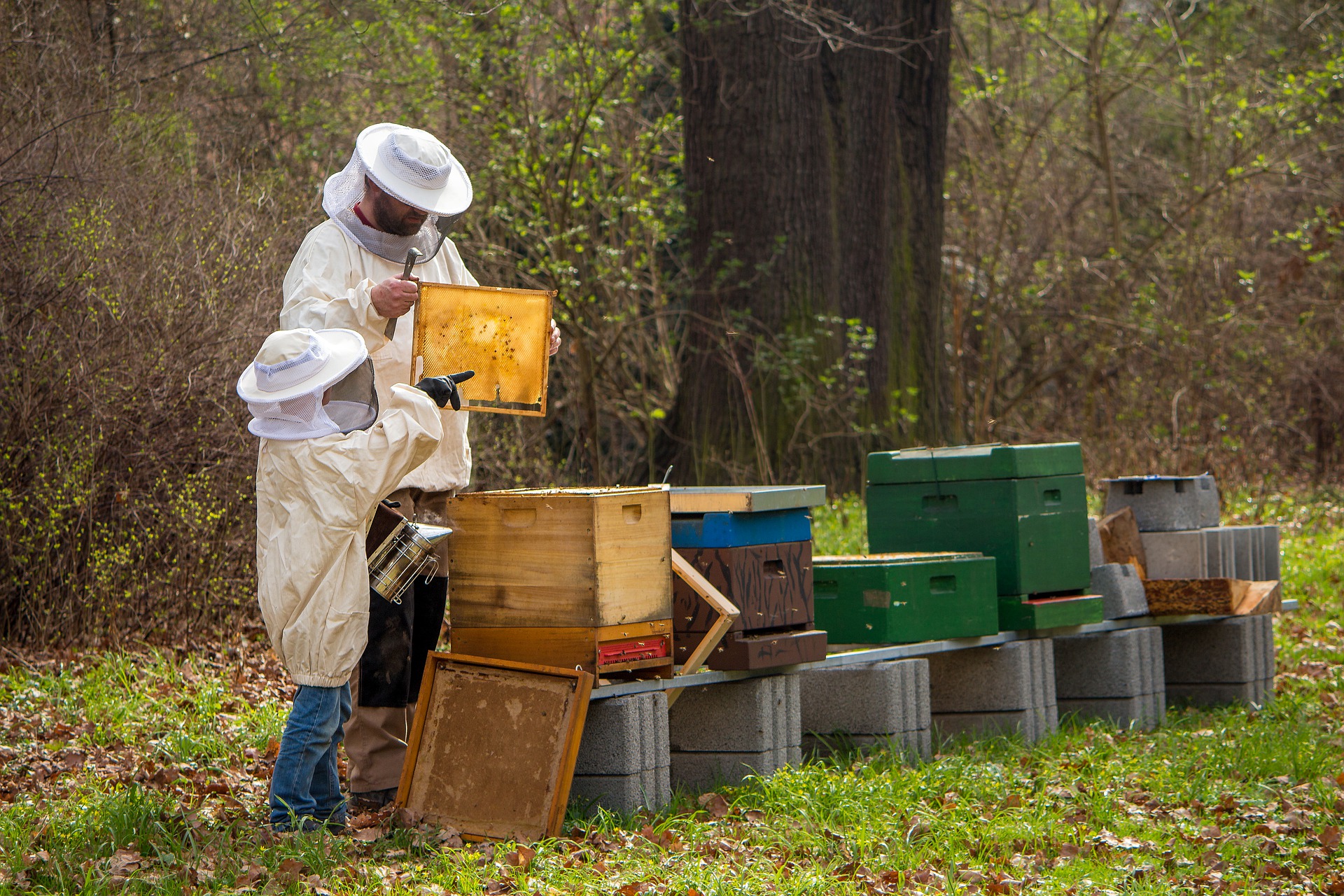 The honey made from beekeeping in Istria is currently applying to the EU for the same protected designation awarded to that from Slavonia
The honey made from beekeeping in Istria is currently applying to the EU for the same protected designation awarded to that from Slavonia
However, for all of the awareness of bees' importance in Croatia, much of is restricted to the familiar scenes of traditional beekeeping. We are only too aware of the diseases and pollutants that can damage these precious colonies that produce our honey and pollinate our plants.
But, the truth of the integral roles bees play in our livelihoods and food is actually very different from what we imagine. It is a truth far removed from the colonies and hives of mask-wearing, honey-collecting beekeepers. Because up to 90% of all bees do not live in colonies at all. Those who don't aren't social, community creatures at all. They live a solitary existence. They are solitary bees. And, these solitary bees are far more important to the pollination of our plants than the colonies that live in hives. Just one single Red Mason bee (one of the many types of solitary bee that lives in Croatia) is equivalent to 120 worker honeybees in the pollination it provides.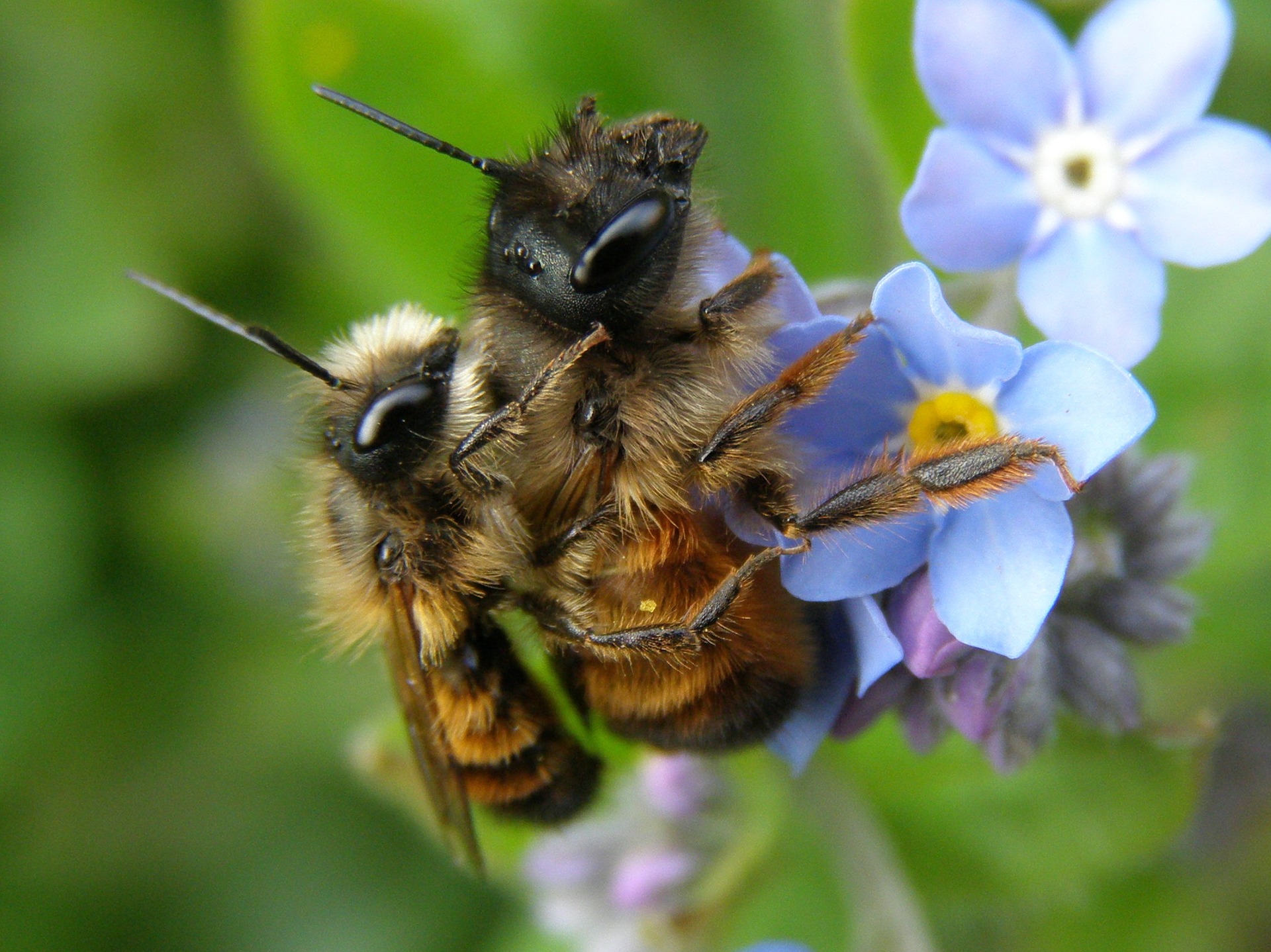 Solitary bees are the best pollinators of all bees
Solitary bees are the best pollinators of all bees
One person who is not unaware of the importance of solitary bees to our existence is 27-year-old Croat Josip Popcevic from Zbjegovača, a small village near Kutina. Since graduating in Production Engineering at the Faculty of Mechanical Engineering and Naval Architecture, Josip Popcevic has turned his mind back to the rural landscape from which he comes and has dedicated himself to the preservation, protection and furtherance of the solitary bee population so integral to our existence.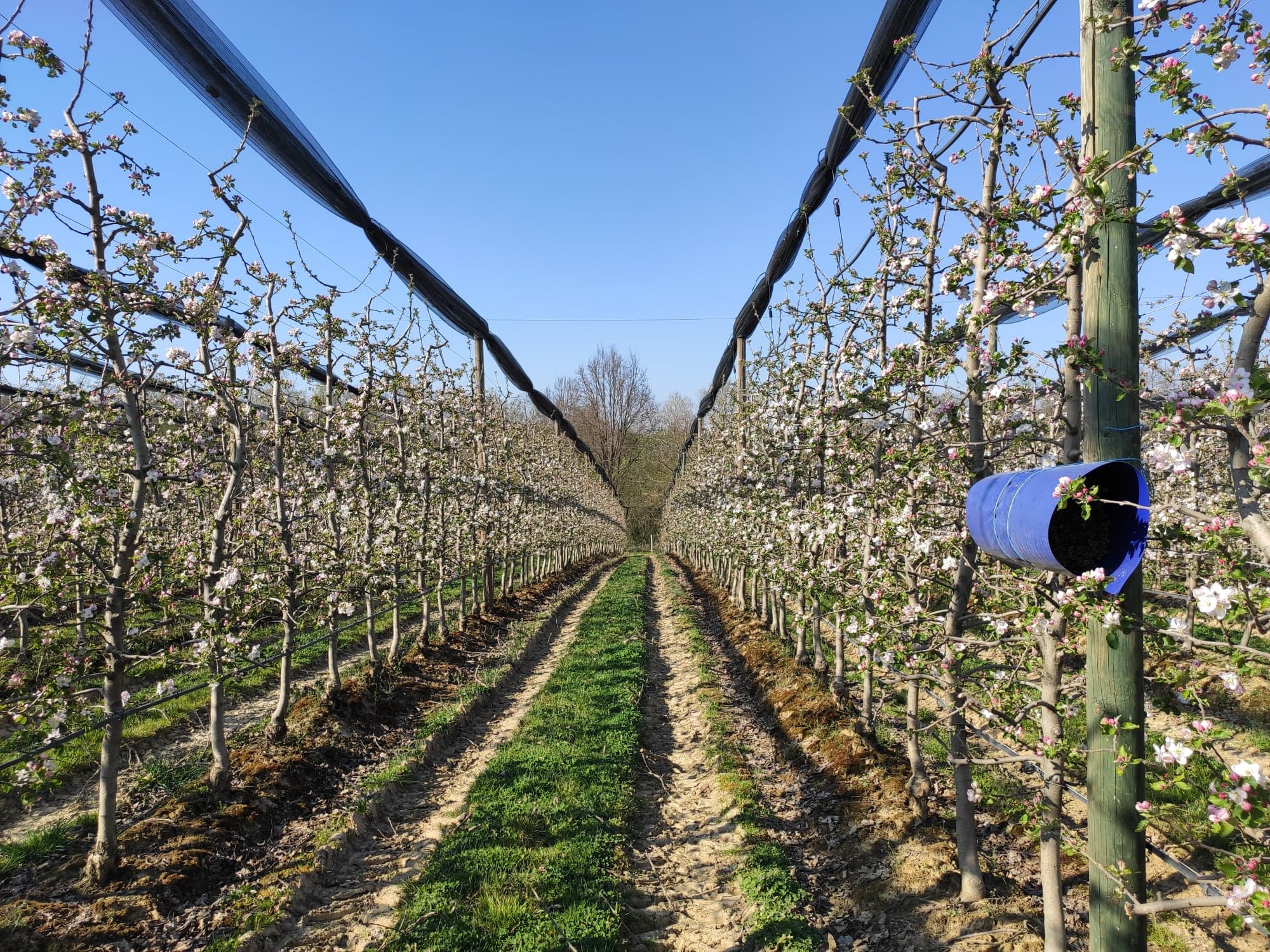 Housing for solitary bees made by Josip Popcevic © Cornuta / Josip Popcevic
Housing for solitary bees made by Josip Popcevic © Cornuta / Josip Popcevic
One of Josip Popcevic's great ideas for securing the future of these important solitary bees could perhaps only come from an engineer – he has decided to build houses for them. This is no easy task. Unlike honey bees, who can live comfortably alongside thousands of others within a colony, solitary bees – as their name suggests – live completely alone. Except when mating, they do not depend on other bees at all. They most often nest in the ground, in wood and other natural materials. They are more active at lower temperatures, do not fly far from where they live, they are less aggressive than colony bees and they do not sting.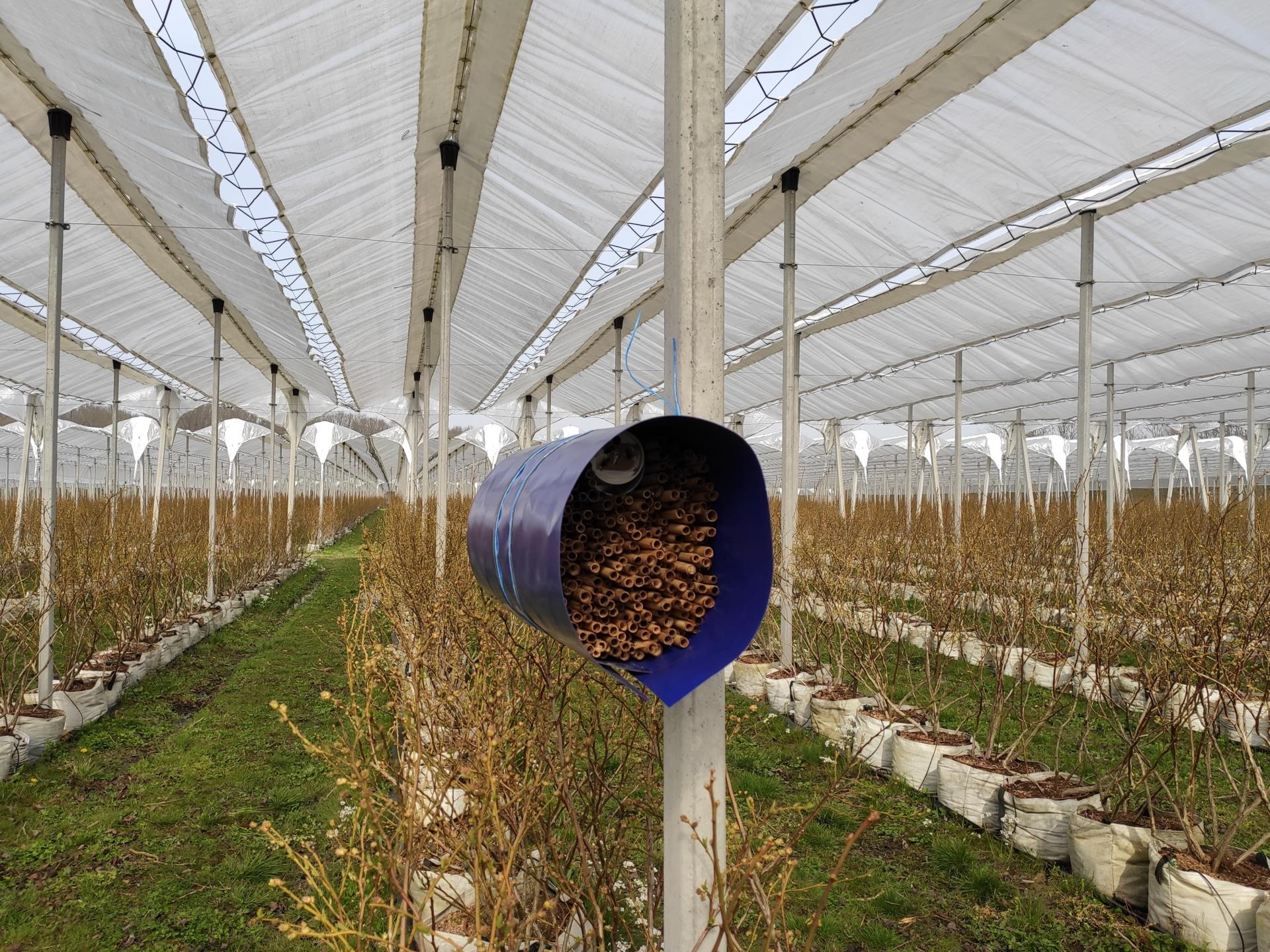 One of Josip's houses for solitary bees, at work within a Croatian agricultural endeavour © Cornuta
One of Josip's houses for solitary bees, at work within a Croatian agricultural endeavour © Cornuta
After recognising the worth of solitary bees to pollination, Josip Popcevic realised he could simultaneously run an endeavour of preservation in tandem with a business that was commercially viable to the agricultural industry. He founded the company Cornuta, through which he provided fruit growers with the service of pollination using solitary bees. Now he has extended the business to building houses for solitary bees. He now sells the houses to those operating within the agricultural sector. And, while his efforts currently lie solely within the borders of Croatia, thanks in part to a business competition grant, he has his eyes on expansion of his endeavours into both neighbouring countries and local communities.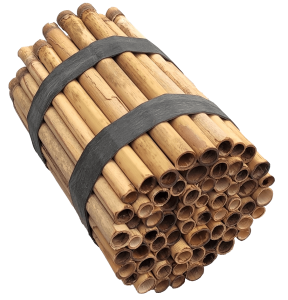 © Cornuta
© Cornuta
“I will soon start placing dwellings for solitary bees on public areas such as parks and school gardens,” Josip Popcevic told Jutarnji List in a recent interview. “I want to dedicate myself even more to educating citizens to become aware of the importance of bees for our planet. There is still a lot of room for improvement and I think that this activity will be even more popular in the years to come.”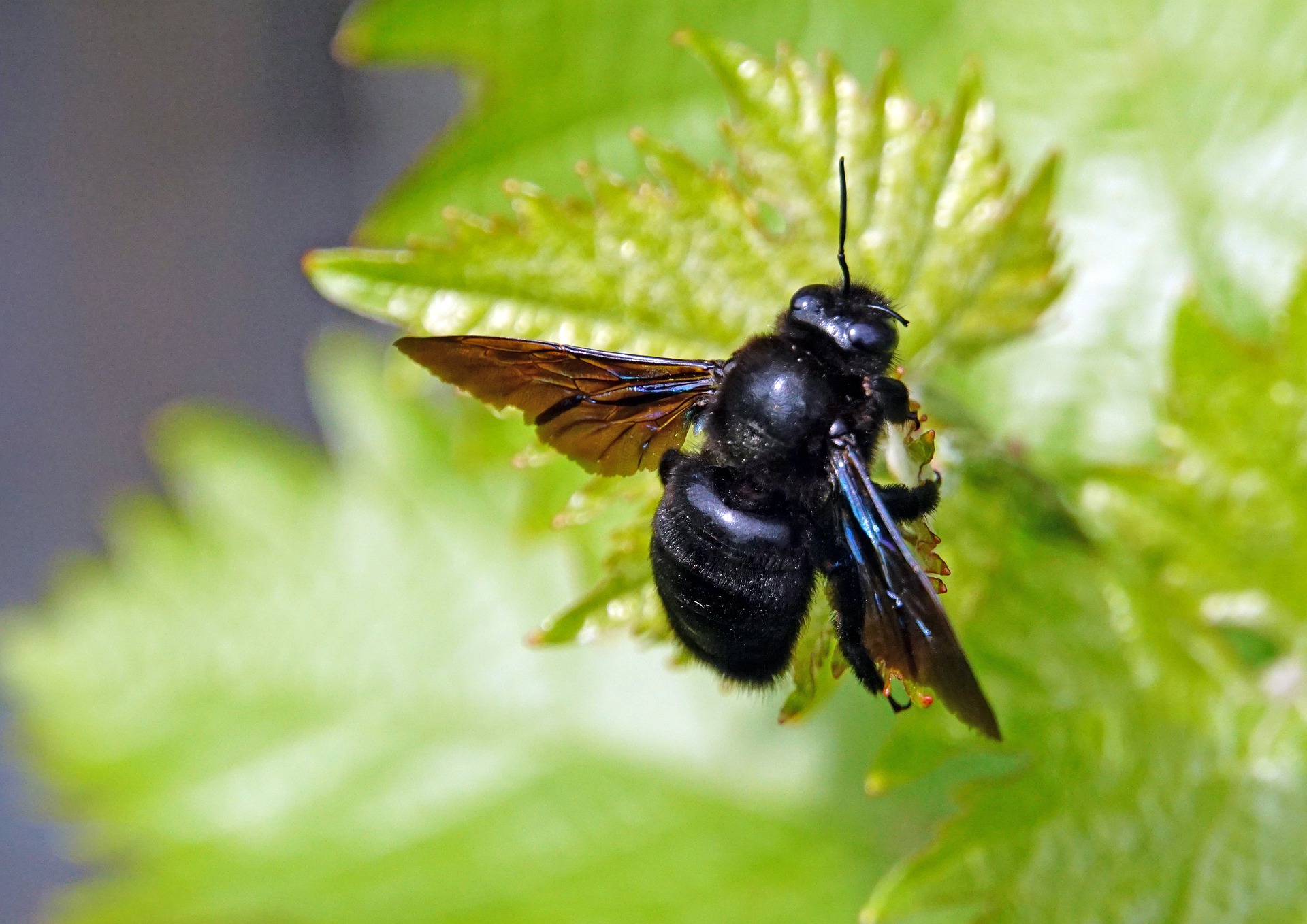 A solitary bee, one of the most important pollinators in the world
A solitary bee, one of the most important pollinators in the world
Par'l Committee: Concrete Support to Farmers in Earthquake-Hit Areas Needed Now
ZAGREB, 15 January, 2021 - Farmers in earthquake-hit areas need concrete help immediately so that they can stay and live and work there, it was said at a meeting of the parliamentary Agriculture Committee on Friday.
In three months' time the committee will convene to analyse what has been done to assist people affected by the earthquakes in 2020.
Farmers are faced with many problems - damaged houses, farm buildings and equipment, polluted wells and buyers who are taking advantage of the situation and offering low prices for their cattle, the committee heard.
The one thing that is obvious is that no one wants to leave their homes, the committee chair, MP Marijana Petir, said.
She said that farmers should be provided with temporary accommodation as soon as possible but also with shelter for farm animals. "We need to act quickly and concretely because if farms shut down, they will never reopen," underscored Petir.
She added that applications for farm support need to be make simpler for earthquake-hit areas as farmers there cannot meet the current criteria.
Everyone needs help immediately
Božidar Antolec from a local action group called for help so that local farmers can place their products on the market and that they be temporarily exempted from paying contributions or at least that they be deferred.
Croatian Chamber of Agriculture (HPK) president Mladen Jakopović said that two large retail chains had offered to place farmers' products from earthquake areas on their shelves through a simplified procedure and one had promised logistics in that regard.
The HPK advocates that support should be provided so that people remain in the area. Jakopović said that the HPK was delivering the first of several housing containers to the area today.
The committee's deputy chair, MP Ružica Vukovac (DP), said that there were problems on the ground, presenting an example in Donja Bačuga where it took three days for the competent services to save a herd of cattle, which, she said, showed that there was a problem in the chain of command.
Agriculture Minister Marija Vučković and state secretary Tugomir Majdak rejected this criticism, saying that they had been in the field constantly.
"That is not a realistic description. The cattle wasn't abandoned and there is no need to exaggerate the situation," Minister Vučković said.
She supported the suggestion that the majority of local products should be used in local kindergartens, schools, hospitals. "We are working on that, however, it is necessary to increase production in that area," she underscored.
Projects valued at more than HRK 1 billion agreed to
Speaking about rural development measures, Vučković said that by 13 January projects valued at HRK 1.08 billion had been agreed to for Sisak-Moslavina County and that HRK 851 million had been paid out. HRK 137 million refers to social and utility infrastructure and HRK 67 million of that has been paid out.
Rural development measures for family-run farms valued at HRK 164 million have been agreed to for 81 projects and 29 projects valued at HRK 1.7 million have been agreed to for emergency aid due to the consequences of the COVID-19 pandemic.
A total of 451 projects for the development of small farms, launching of non-farming activities and support to young farmers valued at HRK 80.3 million have also been agreed to, said Vučković and added that direct payments were accelerated and that to date HRK 93 million, which is usually paid as of 15 February, had already been paid out.
Globalisation Threatens Croatia's Produce and Cuisine Via New Seed Laws
January 15, 2021 – The EU is being backed into a corner by the giants of globalised agriculture. Pre-empting a change in EU-farming directives, a new bill before the Croatian parliament seeks to regulate seed use for the country's farmers, putting at risk Croatia's distinct, regional produce and the country's famous cuisine. TCN interviews one of those leading the fight for Croatia's produce and cuisine.
Question: When is a tomato not a tomato? Answer: When it is a Croatian tomato.
Confused? Well, if you're from Croatia and never much left the country or region, you might be. But, if you're from western Europe or America and you've enjoyed a visit to Croatia, you'll know exactly what this means. As will any Croats who have emigrated to supposedly more 'developed' parts of the world. Food just doesn't taste the same in those places.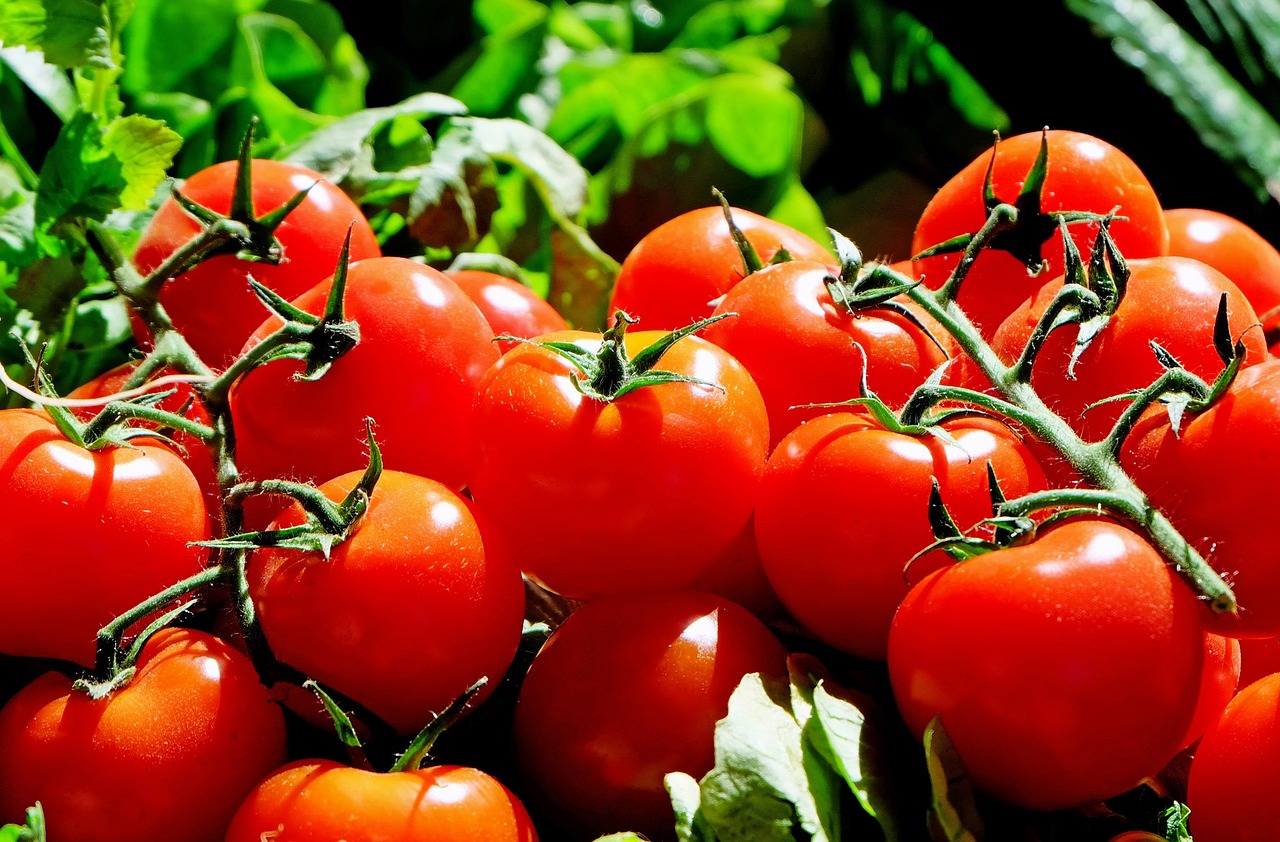 The efforts of small-scale producers, family afrmers and those preserving distinct, traditional crops help give Croatia's produce and cuisine its unique reputation and flavour
The efforts of small-scale producers, family afrmers and those preserving distinct, traditional crops help give Croatia's produce and cuisine its unique reputation and flavour
As TCN touched on in our recent feature about food prices in Croatia (and its impact on health), in the supermarkets of western Europe and in America, everything is available, all of the time. People live in a globalised marketplace where seasonal availability is meaningless when your country and its giant supermarket brands have the power to export from anywhere. But, though everything is always available in these supermarkets, not everything on display is what it seems to be.
In Dalmatia, they like to pride themselves on a generally very simple approach to cooking. Good olive oil, salt, maybe a dash of fresh lemon, garlic and parsley is all you need to make a meal sing. And the surprised, delighted faces of their customers tell them they are right. But, that's far from the full story. It is not the simple approach to seasoning, spicing and condiments alone that brings Dalmatian cuisine to life, it is the base ingredients themselves.
The blitva (chard) stewed in potato, that so easy yet unreproducible shredded cabbage salad, and the similarly simple tomato salad are spectacular to visitors because their main ingredients sing. They sing in way that vegetables bought in supermarkets in western Europe and America do not. They do so because, in Croatia, you can easily choose to eat locally grown, seasonal vegetables and fruits. And these taste a whole lot better than the industrially farmed products that line the shelves in other regions. That's why, in Croatia, a tomato still tastes like a tomato. Whereas a tomato from a supermarket elsewhere tastes like... nothing.
Countless unclassified regional varieties of vegetables and fruits, often grown by small-scale producers or on family farms (OPGs) help give Croatia's produce and cuisine this incredible reputation among visitors. But, as the multi-billion dollar, globalised industry of farming-without-season extends its grip around the world, it is the rights of these distinct farmers which is most at threat.
The European Union is attempting to change its laws and directives for the regulation of seed use within all member states. Pressured by the enormous powers of the global agricultural industry, and partially in an attempt to protect its farmers, it wishes to adopt new laws or regulations to replace extremely outdated earlier versions. Pre-empting this change, a law has been put before the Croatian parliament which seeks to regulate seed use in Croatia. It's a rather complicated piece of legislation and is currently only at the stage of proposal.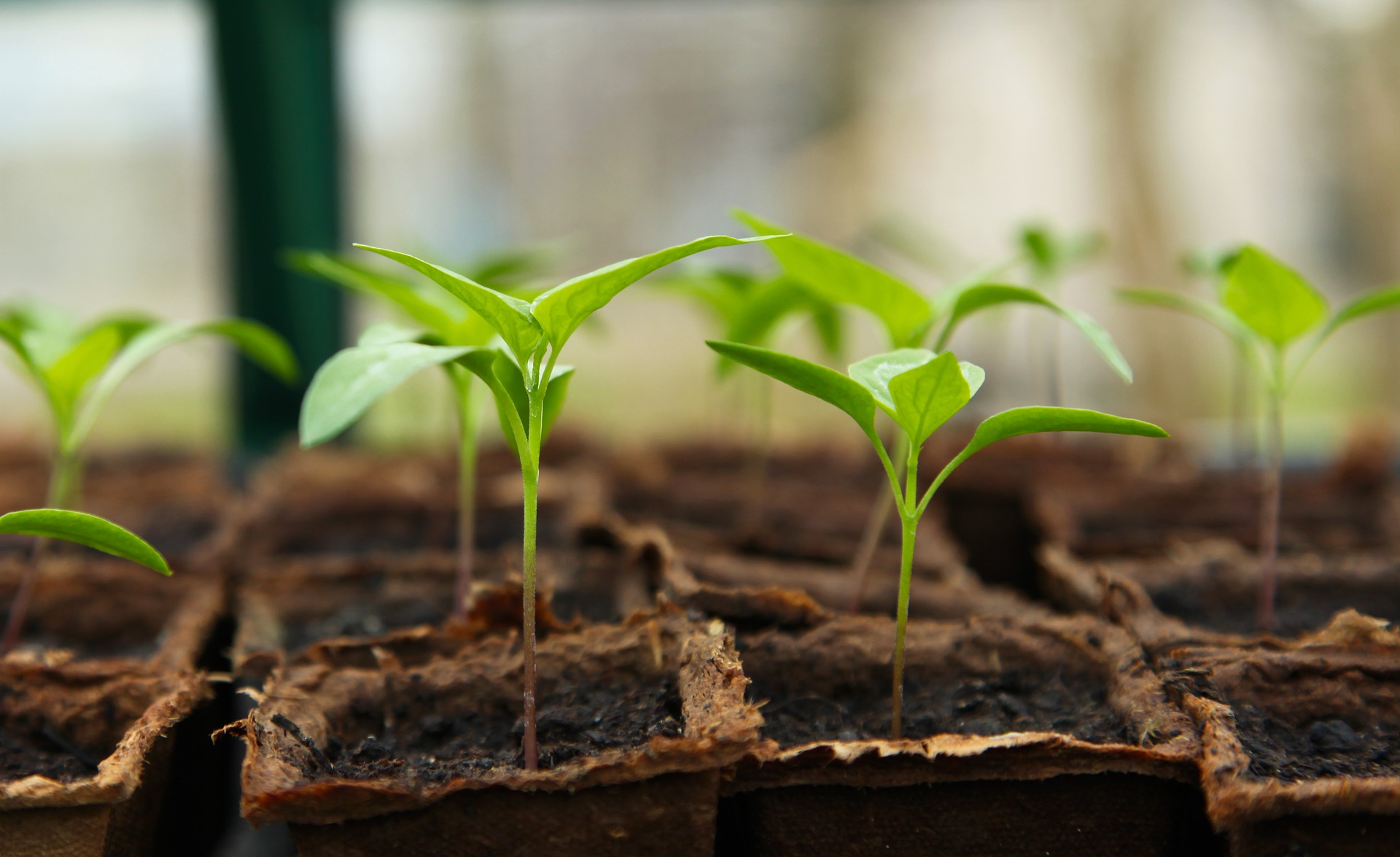 Changes to the laws of seed registration at a national and EU level, partly in response to the demands of the globalised agricultural industry, threaten Croatia's produce and cuisine
Changes to the laws of seed registration at a national and EU level, partly in response to the demands of the globalised agricultural industry, threaten Croatia's produce and cuisine
Monitoring the proposed changes are an army of environmental activists, small-scale producers, family farmers, gardeners and concerned citizens. Spearheaded by three organisations – The Croatian Organic Farmers Association, Life - an organisation of small scale farmers, and Bio-Garden, an organisation made up of gardeners and seed savers - a petition has this week been put before the Croatian parliament objecting to several elements of the proposed new legislation. Earning the support of some 77 Croatian organisations, including farming groups, cattle breeders, plant growers, a network of environmental organisations, permaculture initiatives, gardeners' organisations and even the Chamber of Agriculture, which includes all the farmers inside Croatia, the petitioning of parliament has galvanised many different people in its objection. They say that the proposed new legislation will remove the rights and freedoms of small scale producers and family farms to use their own seeds. This will radically affect Croatia's produce and cuisine.
It is doubtless that there is a worldwide trend, pushing everyone who grows towards buying seeds from globalised agricultural giants. And so, while the response from a broad group of those immediately concerned is impressive enough, awareness of the issue needs to extend much further. It should include every Dalmatian tavern owner and chef who delights a foreign visitor. It should include every single person in Croatia who buys food from a public marketplace. It should include everyone who takes pride in home cooking. It should include the entire tourism industry of Croatia and every visitor to Croatia who has ever enjoyed the food here. Because it is the very distinctive, authentic and traditional nature of Croatia's produce and cuisine that is at stake. Croatia is at real risk of losing the flavour of its food.
“Let me start 10, 000 years ago, when agriculture first started. That's when people learned how to save seeds,” explains Sunčana Pešak, a graduate of Zagreb University's Agriculture Faculty and a member of the three combined groups objecting to the proposed new law. “What these people learned was to save the seeds only from the best part of the harvest. That's what they would use to grow the next season. That's how farming always was. And, it's the way that we got all of the genetic diversity of all the grown foods we eat.”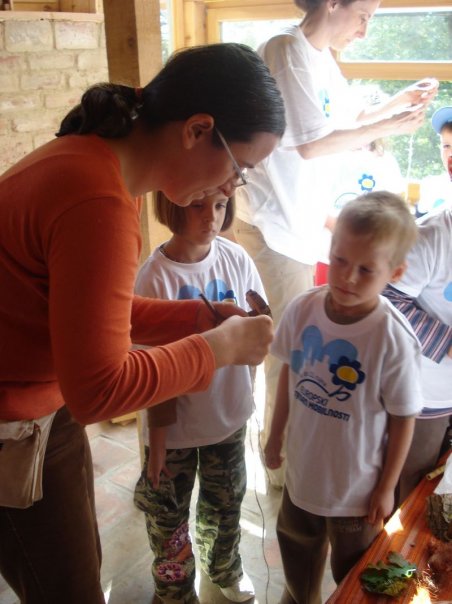 Sunčana Pešak, a graduate of Zagreb University's Agriculture Faculty and a member of the three combined groups defending Croatia's produce and cuisine by objecting to the proposed new seed law
Sunčana Pešak, a graduate of Zagreb University's Agriculture Faculty and a member of the three combined groups defending Croatia's produce and cuisine by objecting to the proposed new seed law
That way of saving seeds still exists. It's what all gardeners and small-scale farmers use. But, now there is something new – industrial farming. They have a different way of saving seeds. This involves a scientific approach to breeding and an industrial approach to growing and harvesting. This is problematic because only around 10 companies in the whole world own the rights to the scientifically manufactured seeds used on this scale of farming. They own the patent rights to the seeds they have created. And, they always want their profits from their seeds being used. These companies are the same ones who produce the chemicals used in industrial farming. They control most of the seed market all over the world.”
The current problems facing small-scale producers and family farmers, brought to a head by the proposed new law in Croatia, essentially come from a clash between industrial-level seed breeders, who control the global market and who demand royalties on their patented seeds, and farmers who just want to grow.
“The term 'Seed variety' itself is a commercial term,” explains Sunčana. “This is something that can be described and catalogued as distinct. All of the plants and their fruits needs to look the same to be identified as this variety. In this way, it can be marketed. But, for people who grow from their own indigenous seeds, in their own traditional ways, their crop is much more diverse.”
“For example, in Croatia, before seed breeding started, people just grew from their own seeds. They would exchange seeds among themselves and eventually each village had its own unique varieties of crops. You could go 20 minutes down the road and the carrots that were grown in the next village were completely different to the ones you grow in your own. Some of the carrots were big, some small, some looked weird, some took on a white colour because they mixed with the wild-growing varieties. Also, as a small producer, you might employ the use of a combination of seed. You plant it and when it grows you get completely different kinds of plants. People might have a winter mix and a summer mix. It ensures diversity in growing and in the diet. Even with grains, by planting a mixture you might ensure a harvest is more resistant to a pest or a weather intervention. One element of the proposed new law would prevent those kinds of mixtures being planted and we would lose completely the initiative and experience of farmers who do so.”
“They proposed new seed law seeks to regulate everything. The demands asked of small scale farmers under it are the same one asked of industrial-scale farmers – they are all placed on the same footing. If you want to use a seed of your own, you have to register those traditional varieties in a system that is currently undefined. Why? Just let people grow. It is their right.”
The groups objecting to the proposed new law in Croatia have found some allies in their fight. Small scale producers and the owners of family farms around the world have been battling against the monopolisation of the farming industry by a handful of globalised giants for many years. They are organised and have teams of lawyers working on their behalf. They have lent support to Croatia's collective of objectors in their fight, helping to point out that the new proposed law goes against the rights not only of EU citizens but against global human rights. "States shall recognize the rights of peasants to rely either on their own seeds or on other locally available seeds of their choice, and to decide on the crops and species that they wish to grow." says the United Nations Declaration on the Rights of Peasants and Other People Working in Rural Areas.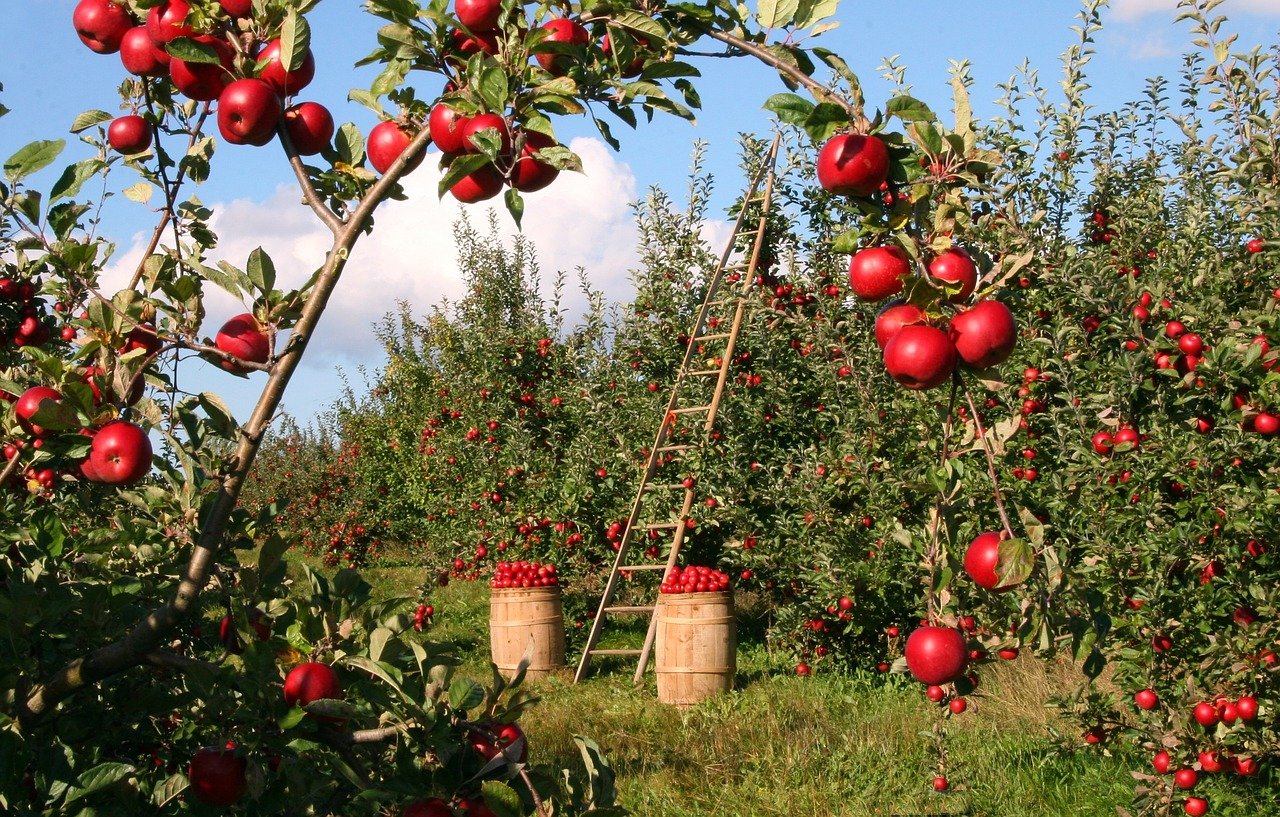 Traditional farming and time-honoured seed varieties help make Croatia's produce and cuisine unique in Europe. Croatia currently stands strong against the pressure from globalised agriculture to accept GMO produce. Can it stand as strong against its demands for new registrations of seeds?
Traditional farming and time-honoured seed varieties help make Croatia's produce and cuisine unique in Europe. Croatia currently stands strong against the pressure from globalised agriculture to accept GMO produce. Can it stand as strong against its demands for new registrations of seeds?
“The risk is huge,” says Sunčana, when asked what might happen to Croatia's produce and cuisine if the proposed new law passes without objection. “In just the last 100 years we lost 75% of our genetic biodiversity. That happened quite simply because people started buying seeds instead of saving them and then growing their own. All of the seeds that are now grown are quite alike. They take varieties that are proven to be the best, to grow to a maximum yield, to be resistant to pests and weather and which can grow successfully in all the different climates of the world. These are varieties that are standardised, well suited to industrial farming – they all ripen at exactly the same time, assisting mechanised harvesting. But, that logic does not always suit small scale farms, where you might need to grow from seeds whose plants reach maturity over an extended period. This gives you many weeks of opportunity to harvest and to sell on different market days.”
But, it isn't just a loss to the convenience of family farmers that would be enforced by the new law. Nor it is solely a matter of losing the tastes of traditional varieties of vegetables and fruits within Croatia's produce and cuisine. The loss to our collective health from this massive reduction in the variety of genetic biodiversity in our diet is currently unknown. Future effects could be catastrophic. Not only that, we could rapidly be losing crop varieties that might better adapt to the new conditions that will be imminently brought about by climate change.
“People with small farms already have enough trouble dealing with bureaucracy and administration. There's no way that all of Croatia's growers will go through the timely ordeal of registering every seed we have,” explains Sunčana, detailing another stipulation that lies within the proposed new change of law. If growers don't wish to register their own distinct varieties - which may have been preserved within their families or communities for generations, they always have the option of going to the National seed bank and taking from there, seeds that have already been registered. Unfortunately, only 27 such seeds exist within Croatia. And the seed bank can only supply such a small amount that it may take a small scale farm several years to build up the supply they need for their business.
The proposed new change of law in Croatia is extremely complicated, as will be the procedures and demands on growers if it passes. The change in seed regulation at an EU level could be similarly restrictive to non-industrial farmers and growers. But, though it is the Croatian government – and then the lawmakers of the EU – who will be addressed by the objections of farmers, growers, gardeners and biodiversity organisations, it is ultimately the profits of a small cabal of globalised and increasingly industrial agricultural/chemical giants which lie at the heart of the demand for change. They are a force of near incomparable strength.
On the surface, the issue of seed regulation might appear to really matter only to those who have a small to medium-sized business growing tomatoes or similar. But, the reality is that this issue concerns us all - everyone who puts a tomato on their fork, on their children's plate or on the table of an overseas visitor who will never forget the distinct flavour of Croatian food. It is the flavour of the future, and the reputation of Croatia's produce and cuisine, for which the fight is currently being made.
Direct Help: Order From a Petrinja OPG, Small Producer, Family Farm
January 9, 2021 – The area affected by the devastating earthquake of 29 December 2020 is mostly rural. People there live off the land. They employ others at family farms and as small scale producers. Ordering from a Petrinja OPG or one from the surroundings directly helps families and the economy of the earthquake-affected area, so here's a list detailing them
Alongside the outpourings of sympathy and promise of prayers, since the large earthquakes of December 2020 struck Sisak-Moslavina County, Total Croatia News has been inundated with requests from regular readers and other asking how they can directly and effectively help. TCN has tried to answer all enquiries the best we can and has striven towards directing donors to the best-placed outlets.
Certainly, the rebuild of the communities and economies in places like Petrinja, Glina, Sisak and hundreds of surrounding villages, hamlets and settlements will take months, even years. As TCN discovered after we visited the affected region one day after the earthquake, this area is predominantly rural. People here live off the land, from agricultural endeavours. Small producers and family farms make up much of the economy. In a year where such producers have been hard hit by travel restrictions and other aspects of the pandemic, the livelihoods of many have been shattered by the subsequent earthquake.
In a pro-active, helpful and exhaustive piece of data collection, writer Antonia Dobrota and the team at Croatian-language tourism portal cimerfraj have over recent days come up with an inspired suggestion of how [people can directly help the economies and people of the affected region. They have published a list of as many small producers, family farms and Petrinja OPG producers, plus those in surrounding areas.
By ordering food, produce and goods like pottery from this list, people can spend their money directly within the economies of the affected area – no suspicion, no doubt, no middlemen, no staffing costs deducted. It is an inspired decision to construct (and continually update) such a list. Bravo, Antonia and cimerfraj! Several Croatian-language media outlets have since republished the list. Total Croatia News is pleased to do so in English. We warmly encourage its use, not only now, but in the months that follow.
Being small producers and family farms, most of the producers below are not only vital to others in the local communities (by offering employment opportunities), their goods are almost exclusively organic and produced in a traditional, eco-friendly manner. Any orders should be submitted with the utmost confidence.
(OPG is a designation in Croatia that is given specifically to family farms and small, community producers)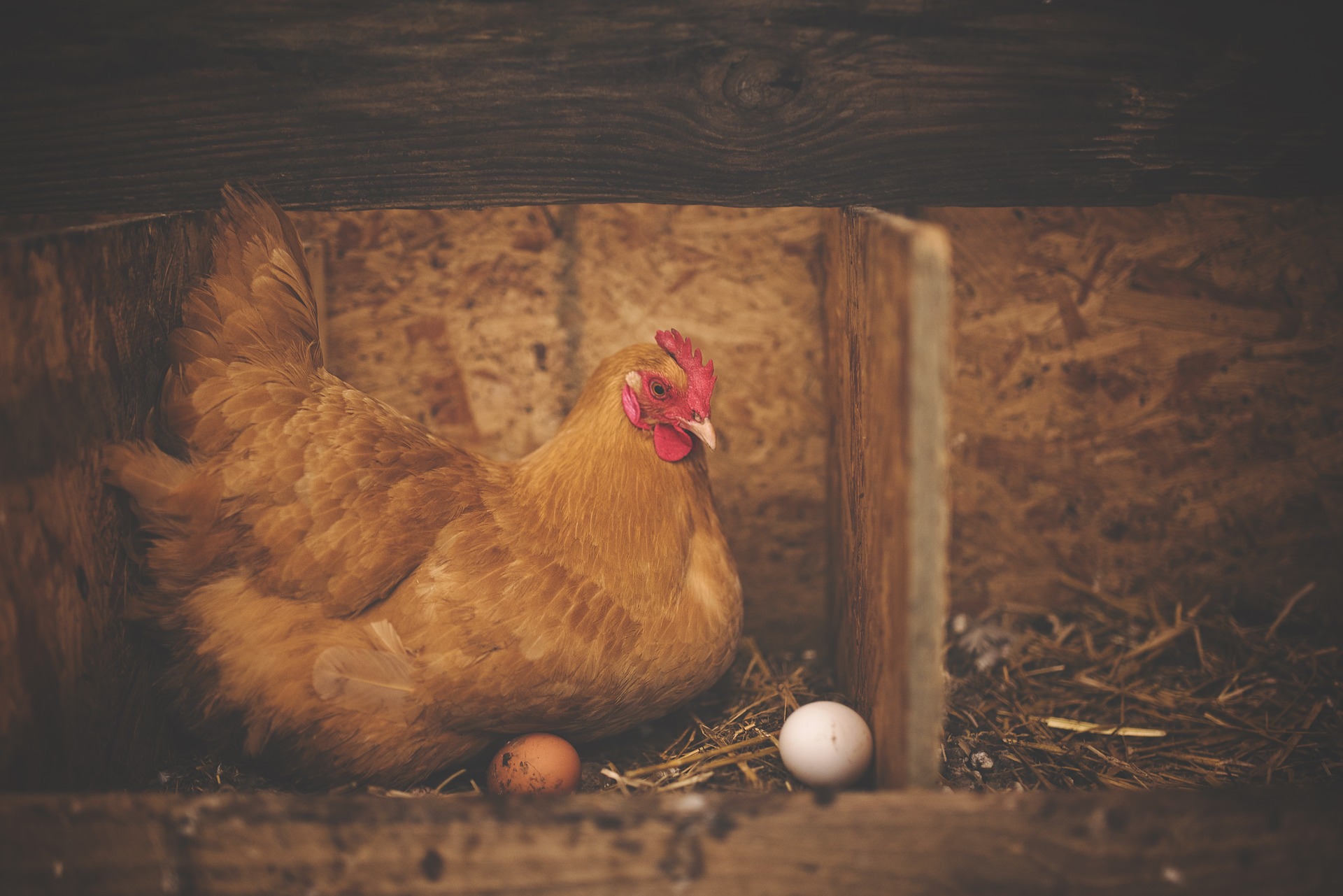
OPG Mladen Tonković
Gornji Vidusevac 2a, Glina
095 8069 822
This email address is being protected from spambots. You need JavaScript enabled to view it.
Products: hazelnuts
OPG Predrag Đurđević
Stjepana Radića 168, Petrinja OPG
091 5853 717
This email address is being protected from spambots. You need JavaScript enabled to view it.
Products: honey, bee products
OPG Vicencinović Hergouth
Stari put 28, Gornja Gračenica
098 9817 696 This email address is being protected from spambots. You need JavaScript enabled to view it.
Products: liqueurs, fruit brandies
OPG Naglić
Kompator 34, Velika Ludina
091 5437 949
This email address is being protected from spambots. You need JavaScript enabled to view it.
Products: organic fruit
OPG Pčelarstvo Crneković
Kornatska 20, Sisak
091 8913 248
This email address is being protected from spambots. You need JavaScript enabled to view it.
Products: honey, bee products
OPG Tomislav Marcinek
Mate Vezmara 25, Voloder
098 9043 165
This email address is being protected from spambots. You need JavaScript enabled to view it.
Products: sheep, chicken and rabbit breeding
Family farm Zeljko Perkovic
Timarci 117, Sunja
091 5887 753
This email address is being protected from spambots. You need JavaScript enabled to view it.
Products: sheep
OPG Oljačić
Dragutina Benka 12, Petrinja OPG
098 1861 397
This email address is being protected from spambots. You need JavaScript enabled to view it.
Products: seasonal fruits and vegetables
OPG Horžić
Vladimira Nazora 26, Sunja
099 4600 210
This email address is being protected from spambots. You need JavaScript enabled to view it.
Products: meat and eggs
OPG Abramović
Franje Zuzeka 17, Glina
098 638 455
This email address is being protected from spambots. You need JavaScript enabled to view it.
Products: mulch, honey and beekeeping products
OPG Leci
Tadije Smičiklasa 34, Petrinja OPG
091 1502 732
This email address is being protected from spambots. You need JavaScript enabled to view it.
Products: chokeberry / ariona berry and fruit jams, chokeberry / ariona berry juice
OPG Mikliš
Desno Trabarjevo 39, Martinska Ves
098 615 011
This email address is being protected from spambots. You need JavaScript enabled to view it.
Products: chickens, ducks, turkeys, chickens, eggs
OPG Ivanković
Martinska Ves 124, Martinska Ves
095 3992 217
This email address is being protected from spambots. You need JavaScript enabled to view it.
Products: hazelnut, beans, orange sweet potato
OPG Ćordaš
Donji Klasnic 111, Glina
091 8843 182
This email address is being protected from spambots. You need JavaScript enabled to view it.
Products: teas, jams, chokeberry / ariona berry products
OPG Marčinko
Dražena Petrovića 18/2, Petrinja OPG
099 7235 037
This email address is being protected from spambots. You need JavaScript enabled to view it.
Products: chokeberry / ariona berry, various types of honey and juices, eco buckwheat flour
Family farm Jure Kolarić
Bobovac 321, Sunja
095 8158 505
Mini cheese factory
Products: Mini cheese factory
OPG Džakula
Sjeverovac 23, Sunja
091 2048 169
This email address is being protected from spambots. You need JavaScript enabled to view it.
Products: veal, pork, fresh meat and cured meat products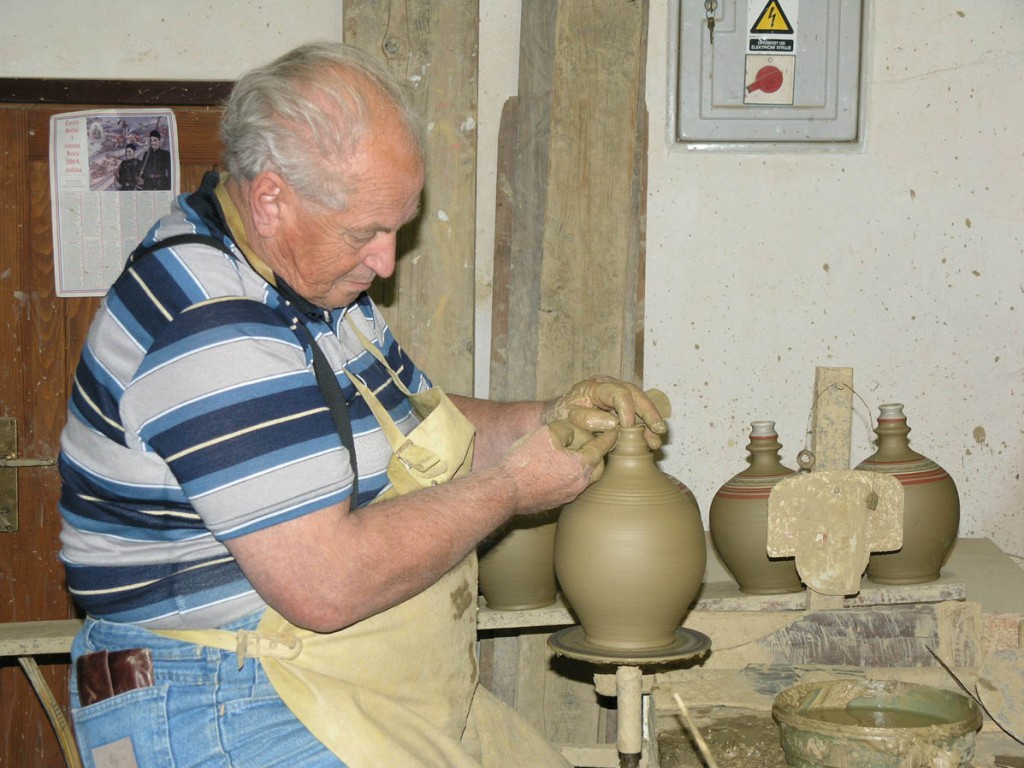 Pottery is a traditional craft in the area of Petrinja © TZ Petrinja
Pottery is a traditional craft in the area of Petrinja © TZ Petrinja
Pottery Matej Stanešić
Ljudevita Gaja 30, Petrinja OPG
044 816 308
This email address is being protected from spambots. You need JavaScript enabled to view it.
Pottery Val
Slavko Kolar 2, Petrinja OPG
0912340 060
This email address is being protected from spambots. You need JavaScript enabled to view it.
Cacti Beslic
Zagrebacka 185, Duzica
044 752 273
Products: cacti, succulents, aloe, carnivorous plants
Vrtlarija Gadžić
Stjepana Radića 324, Petrinja OPG
099 4040 992
gardener-gadzic
Products: flower and vegetable seedlings, perennials, roses, ornamental and spice plants
Eko-Pčela & OPG Rožić
Slatina 86, Petrinja OPG
098 1727 187
Products: organic honey, grain, rye, buckwheat, oats, fruit seedlings
Beekeeping Priljeva
Mije Srnaka 40, Petrinja OPG
098 9748 434
honey and beekeeping products
OPG Jela Grubišić
9 Gromova Street, Petrinja OPG
098 9454 211
Products: chickens, eggs
OPG Josipa Gadžić
Franza Wagnera 92, Petrinja OPG
098 9454 211
Products: flower and vegetable seedlings
OPG Polimac
Gornja Mlinoga 44
044 823 117/098 1373 107
Products: lambs and sheep
OPG Bunjan Dalibor
Sisačka 50 a, Petrinja OPG
099 2540 815
This email address is being protected from spambots. You need JavaScript enabled to view it.
Products: seasonal fruits and vegetables
OPG Champignon
Đurđica Bočina, Žabno 16, Sisak
099 8196 665
This email address is being protected from spambots. You need JavaScript enabled to view it.
Products: different types of mushrooms
OPG Trsoglavec Štefica
Sibic
098 286 558
Products: cheese, cream, butter and other dairy products
OPG Radošević Marijana
Stromarova 9, Petrinja OPG
099 2557 140
Products: honey and bee products
OPG Dario Paropatić
091 5723 320
Livestock breeding, buying and selling
OPG Paropatić Dejan
099 6597 155
Buying and selling live cattle
OPG Dvorneković
Milana Makanca 25, Petrinja OPG
091 1814 368
Products: blackberry wine, red currant wine, honey, propolis and fruit liqueurs
OPG Šipuš
Preloscica 92, Sisak
097 6674 912
Products: dairy products, cheeses of different flavors
OPG Vuletić Željka
Gornja Mlinoga 39, Petrinja OPG
098 1847 750
This email address is being protected from spambots. You need JavaScript enabled to view it.
Products: jams, marmalades and juices from pumpkin, chokeberry / ariona berry and other fruits
OPG Priljeva Stojan
Donje Seliste, Glina
044 880 353/099 7403 650
Products: cheese and dairy products
OPG Lovro Lenac
A. Tomulića 10, Hrvatska Kostajnica
099 5127 643
This email address is being protected from spambots. You need JavaScript enabled to view it.
Products: pumpkin and chestnut
OPG Tamara Sekereš
Osekovo
091 7914 230
This email address is being protected from spambots. You need JavaScript enabled to view it.
Production: Beekeeping. 8 different types of honey, honey mixtures, propolis, delivery for Zagreb
OPG Ivica Vancas
Nebojan 134, Petrinja OPG
044 751 034/099 8048 076
Production: cereals (except rice), legumes and rapeseed oil
OPG Finka and Zdravko Oršulić
Matije Antolca 141, Petrinja OPG
095 9033 084/095 5863 284
Products: vegetable and flower seedlings, flowers and herbs
Family farm Snježana Oršulić
135 Gromova Street, Petrinja OPG
095 9074 512
Production: flower and vegetable seedlings
OPG Kata Čiča
Donji Viduševac, Glina
098 9945 323
Products: eco hazelnuts and free-range eggs
Family farm Slavica Jurić
Donja Budicina 22, Petrinja OPG
091 7220 520
Products: free-range eggs
OPG Mladen Bjelac
Ive Maline 84, Petrinja OPG
098 601 191
This email address is being protected from spambots. You need JavaScript enabled to view it.
Products: hazelnuts
OPG Stevo Zec
Hrvatska Kostajnica
091 7267 749
Products: honey
OPG Novakovic Milan
Gornji Bjelovac 15, Donji Kukuruzari
044 856 073
This email address is being protected from spambots. You need JavaScript enabled to view it.
Products: home-made sausages and bacon, pork fat
OPG Nikola Petković
Kralja Tomislava 73, Glina
091 7691 460
This email address is being protected from spambots. You need JavaScript enabled to view it.
Products: blackberry wine, blackberry liqueurs, raspberries, cherries, walnuts, rakija, jams, rural tourism
OPG Petrinjčica Davor Lugomer
Luščani 115
091 4000 407
Borovnice Petrinjčica
Products: blueberry cultivation from 15.6 to 10.8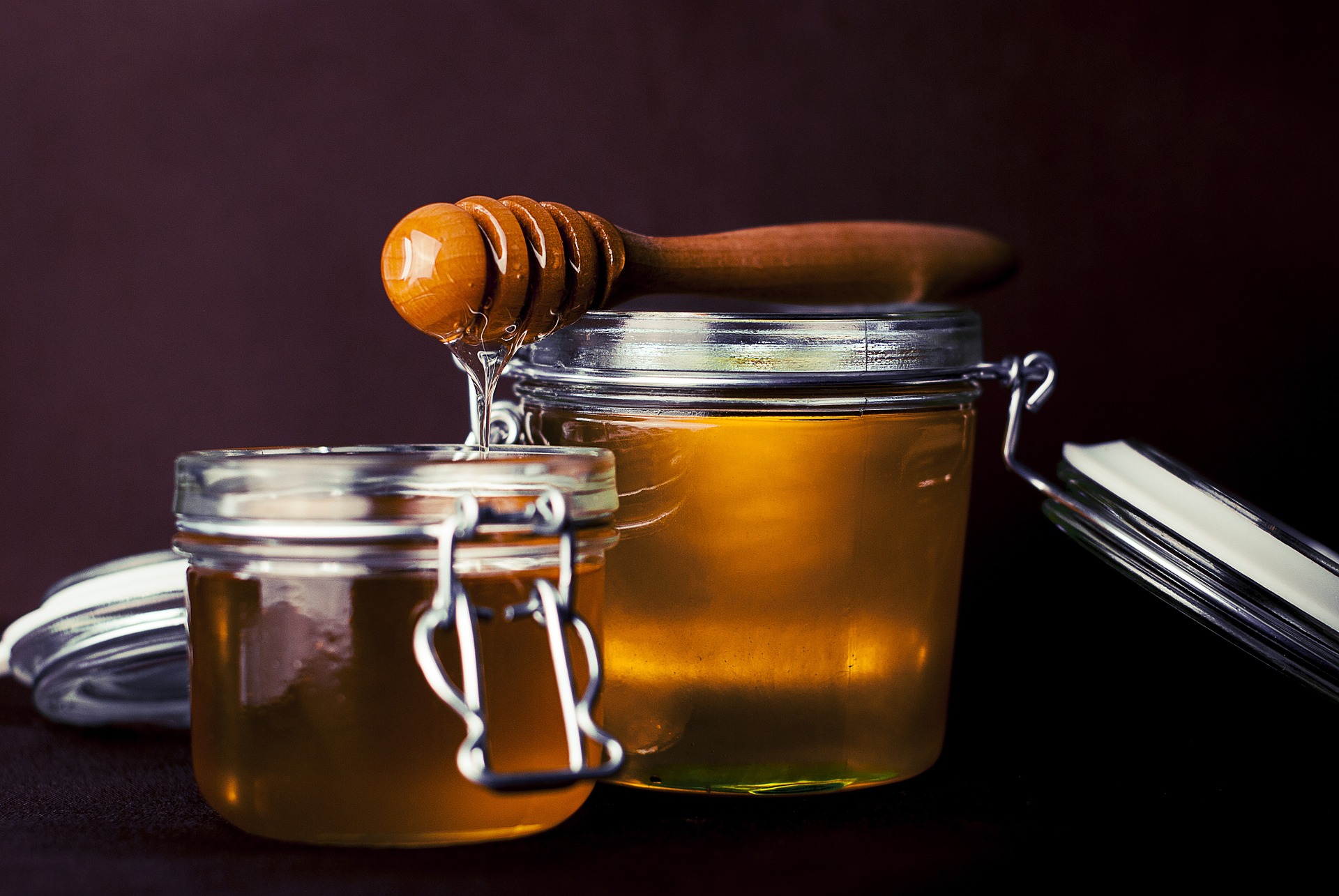
OPG Križić
Matije Antolca 1, Petrinja OPG
095 3924 280
Products: vegetables and bee products
OPG Marica Rožić
Vratečko 23, Petrinja OPG
091 6141 708
Products: livestock (cows, horses, chickens), milk production
OPG Naglić Kristina
Hrvatskog proljeća 30, Glina
099 2309 051
This email address is being protected from spambots. You need JavaScript enabled to view it.
Products: lambs, wine, brandy, liqueurs and Christmas trees
OPG Nikola Navijalić
Kralja Tomislava 1 branch 5, Moscenica
098 9729 671
Products: strawberries, vegetables, honey
OPG Miroslava Jović
Brezovo Polje 38, Glina
099 8299 458
Products: veal
OPG Josip Petrović
Brezovo Polje 95, Glina
099 2153 129
Products: pork, lamb, calves and young goats
OPG Dragan Jović
Brezovo Polje 95, Glina
099 2153 129
Production: calves
OPG Marijan Glušić
Antuna Mihanovića 1a, Petrinja OPG
095 9099 305/091 5251 497
This email address is being protected from spambots. You need JavaScript enabled to view it.
Products: apples and apple juice
OPG Josip Starešinović
Strašnik 109, Petrinja OPG
099 8759 237
This email address is being protected from spambots. You need JavaScript enabled to view it.
Products: milk, cheeses
OPG Milić Perica
Volinja 3, Dvor
099 5904996 / 098 779 214
This email address is being protected from spambots. You need JavaScript enabled to view it.
Products: free-range eggs, beef, composting, potatoes
OPG Vesna Antunović
Don Ante Lizatovica 5, Donji Kukuruzari
098 1902 554
This email address is being protected from spambots. You need JavaScript enabled to view it.
Products: honey, bee products
Family farm Vladimir Vujčić
Velika Gradusa 63, Sunja
091 7231 393
This email address is being protected from spambots. You need JavaScript enabled to view it.
Products: lambs
Family farm Vesna Pranjic - Marincic Winery
Frankopanska 18, Sisak
(new address: Jazvenik 8e, Sela)
0917315678/0915892346
This email address is being protected from spambots. You need JavaScript enabled to view it.
Products: wine, viticulture and winemaking
OPG Anita Zrnić
Bestrma 116, Sunja
098 1829 823
This email address is being protected from spambots. You need JavaScript enabled to view it.
Products: lamb, young goats
DVORSKA KOŠARICA – association of OPGs
091 9299 888
This email address is being protected from spambots. You need JavaScript enabled to view it.
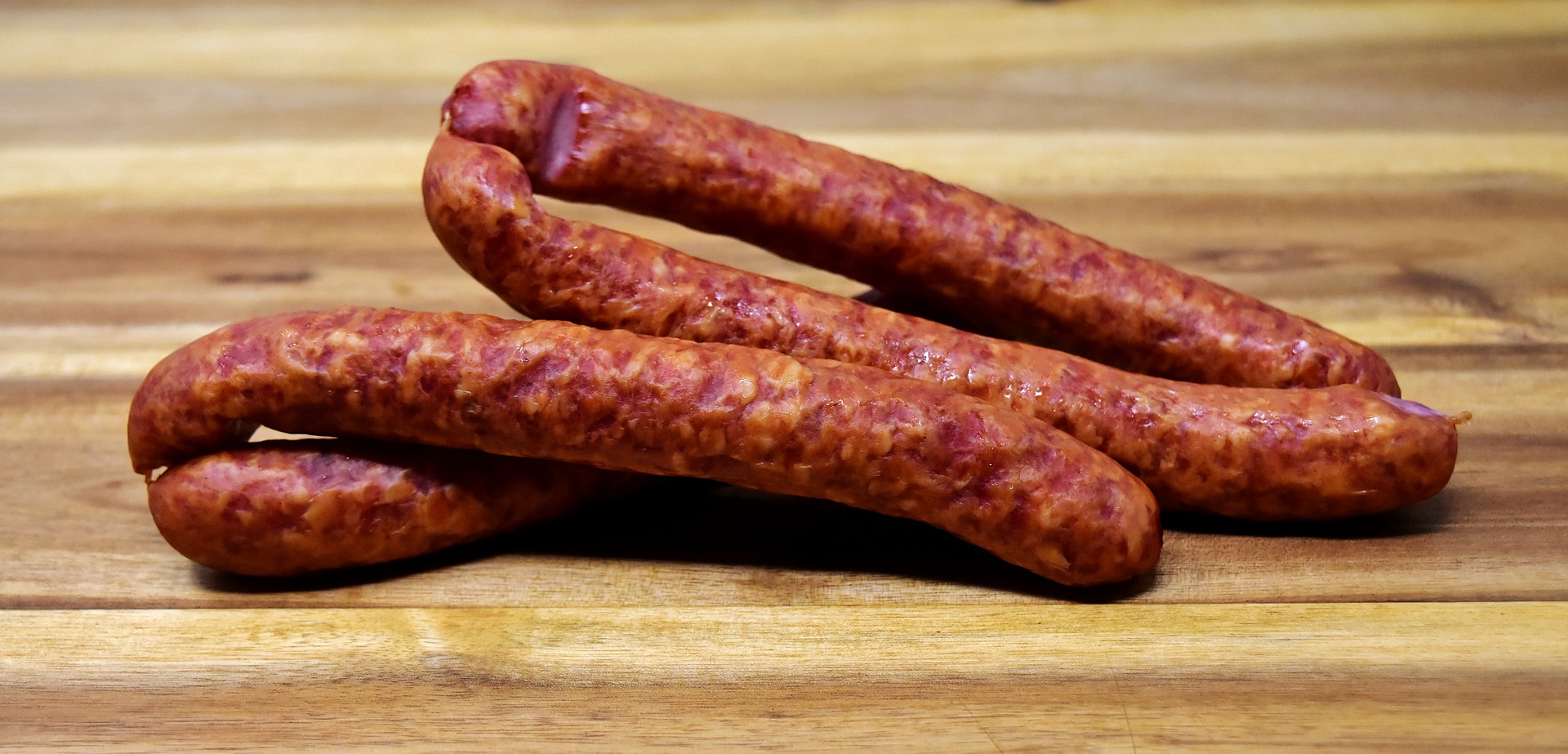
OPG Zoran Simić
Donji Javoranj 38 Dvor
Products: breeder of indigenous, protected breeds of pigs, sheep, goats and donkeys - live animals, meat and meat products - sausages, lard, čvarci (fried pork rind – pork scratchings), bacon
OPG Milko Nišević Kepčije
Products: smoked and fresh cheeses, organic breeding of calves, heifer cows, sheep and lambs
OPG Angela and Štefan Abramović
Products: pumpkin oil, flour, seeds, goat cheese, yogurt, fresh seasonal fruits and vegetables
OPG Milan Janković
Uncani 75, Dvor
0996585104
This email address is being protected from spambots. You need JavaScript enabled to view it.
Products: flaxseed (linseed) oil, pumpkin oil, pumpkin protein, flax seeds
OPG Kokin dom
Petrinja OPG
095 7972 064
Production: chickens
OPG Blaženko Anđić
Tomislava Ivkaneca 8a, Petrinja OPG
Products: honey and bee products, chokeberry / ariona berry products
OPG Jelić Ivka
Gajeva, Petrinja OPG
Available in online shop Zelena Kuca
Products: Collective of small producers of domestic and ecological products from Petrinja and its surroundings
Family farm Dijana Vukovic
Novi Farkasic 48
099 2862 510
Products: pumpkin oil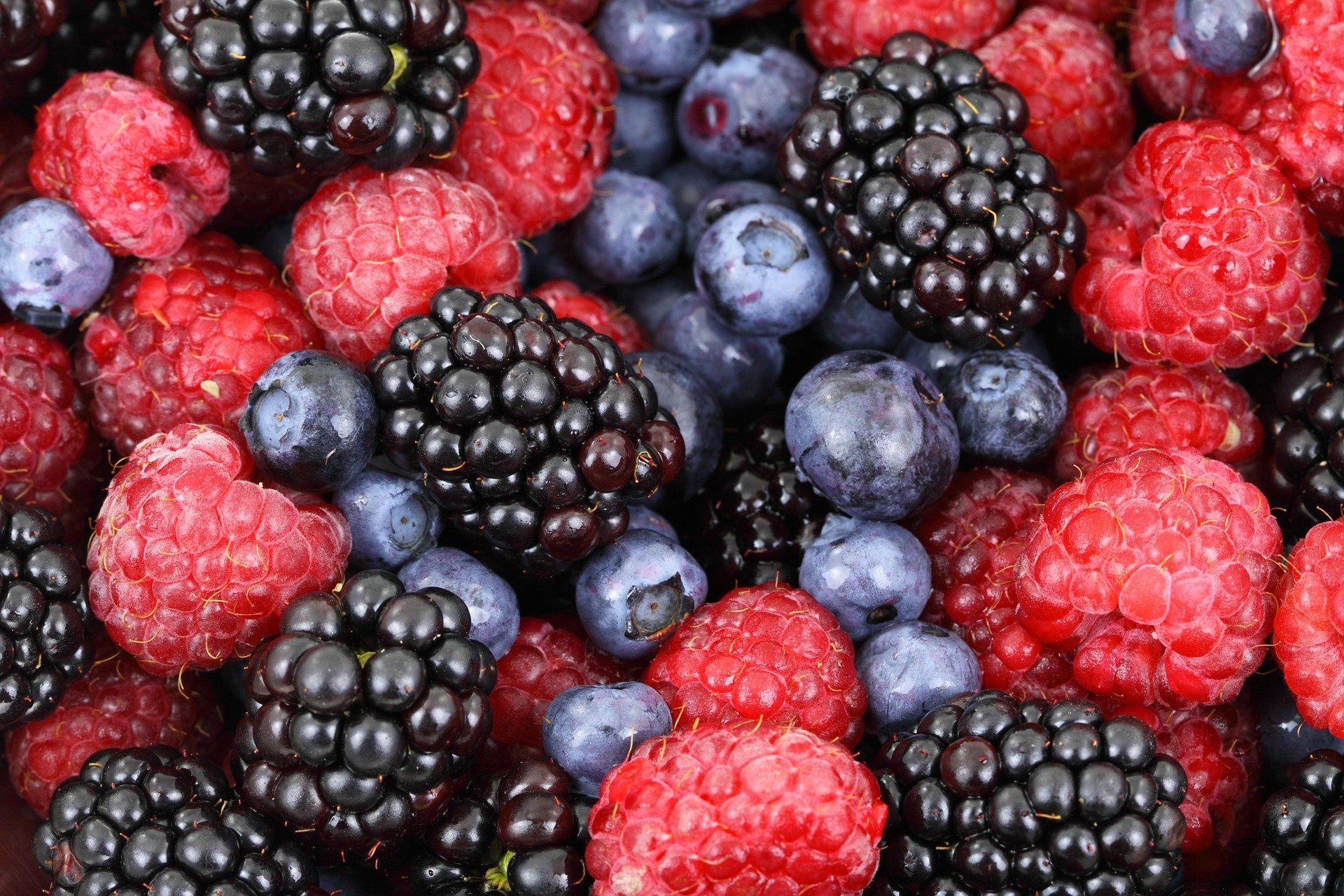
OPG "Majčina dušica" Nada Tanković
Petrinja OPG
091 7346 973
This email address is being protected from spambots. You need JavaScript enabled to view it.
Products: spices, herbs and medicinal herbs, berries (currants, raspberries, blackberries)
OPG Barišić Ivan
Mececani, Donji Kukuruzari
091 6460 664
This email address is being protected from spambots. You need JavaScript enabled to view it.
Products: vegetables, fruits, conserved fruits and vegetables, sheep and beekeeping
OPG Mara Dejanović
Deanovići 12, Petrinja OPG
098 9424 409
Products: dairy products, meat products, eggs, onions and other vegetables, lambs, pigs, calves
OPG Josip Jurković
Desni Degoj 20, Glina
098 9830 900
This email address is being protected from spambots. You need JavaScript enabled to view it.
Products: eggs, potatoes, sweet potatoes, onions
OPG Mira Cavic
Batinova Kosa 59, Topusko
099 7987 820
Products: free-range eggs, honey, potatoes, onions, lard, cleaned (plucked and butchered) chickens, geese and ducks, lambs
OPG Špiljar Nikola
Novi Farkasic 43, Petrinja OPG
098 9721 470
Products: cow-calf, sheep, pigs and horses
OPG Ivica Klobučar
Jurja Fratrovića 13, Glina
This email address is being protected from spambots. You need JavaScript enabled to view it.
Products: sheep breeding and free-range eggs
OPG Borojević
Trgovi, Dvor
091 9158 544
This email address is being protected from spambots. You need JavaScript enabled to view it.
Products: certified organic production and processing of hazelnuts (shelled hazelnuts, hazelnut oil, hazelnut flour, roasted hazelnuts) and buckwheat
OPG Severin Jurić
Lijevi Odvojak 33 A, Brest Pokupski
099 5053 160 / 098 551 324
This email address is being protected from spambots. You need JavaScript enabled to view it.
Product: hazelnuts
Cimerfraj add the following notes:
This list includes all small producers and family farms from the earthquake-affected settlements and the surrounding areas. At the time of compiling the list, we do not know whether these manufacturers are harmed or not, nor do we consider this important. We believe that synergy is necessary in order to initiate the balanced development of favorable existential opportunities for life in this area.
Due to some parts of the area currently being poorly covered by phone and internet signal, some of the manufacturers are easier to contact by text message, SMS or WhatsApp.
The list is still being updated. If you know of a domestic manufacturer from the affected area who is not currently included, please send all relevant details to This email address is being protected from spambots. You need JavaScript enabled to view it.
Croatia Agriculture Production Grows by 1 Billion Kuna in 2020
January 7, 2021 – Within the last month, TCN was pleased to report that Croatia agriculture and food exports had jumped considerably in 2020, while imports of the same had fallen. The success of Croatia agriculture in 2020 has been confirmed by a new report which shows that the industry has grown by almost one billion kuna in a year
The success of the Croatia agriculture sector in 2020 was detailed in a report by Smarter, a consulting company specialising in the agriculture and food industry. Vecernji List published their coverage of the report in recent days.
In the report, figures show that the value of Croatia agriculture production increased by 4.7% compared to the same period during the previous year. Croatia agriculture revenue, therefore, jumped from 17.9 billion HRK to 18.8 billion, an increase of almost one billion kuna. The 12 month period of Croatia agriculture used to compile the figures ends in November within each comparative year.
Figures show that Croatia agriculture experienced excellent results in crop production (wheat, soybeans, corn, etc). This contributing evidence goes some way to explain the good news TCN reported back in December that, according to the country's Central Bureau of Statistics, the total value of Croatia agriculture and food exports in the period from January to September 2020 amounted to 1.7 billion Euros, an increase of 5 percent from the same period in 2019. Within the same period, the value of agricultural and food imports into Croatia was 2.5 billion Euros, a decline of 7.3 percent from last year.
The result of the 2020 successes in Croatia agriculture has been a reduction in the foreign trade deficit by 26.6% in the agriculture and food sector. The improvement in 2020 is being partly attributed to grants and payments under the Rural Development Program (RDP), which have grown significantly creating a stimulus that in part affected the growth of the value of production and the amount that was produced. Increasing profits within the country's agriculture sector is being catalysed by adding value to the raw product which is grown here, via processing and other methods, which happens prior to export taking place.
Croatia Agriculture and Food Exports Jump in 2020, Imports Fall
December 19, 2020 – A surprising success story in a difficult year as Croatia agriculture and food exports jump in 2020, while imports of the same have fallen
Good news from any place is welcome in this most difficult of years. According to provisional data from the country's Central Bureau of Statistics, the total value of Croatia agriculture and food exports in the period from January to September 2020 amounted to 1.7 billion Euros, an increase of 5 percent from the same period in 2019. Within the same period, the value of agricultural and food imports into Croatia was 2.5 billion Euros, a decline of 7.3 percent from last year.
The success of Croatia agriculture and food exports in the period means that the country's trade deficit has decreased by huge 26.6 percent compared to the same period last year. With this year's findings taken into account, the trade deficit now stands at 758.8 million Euros.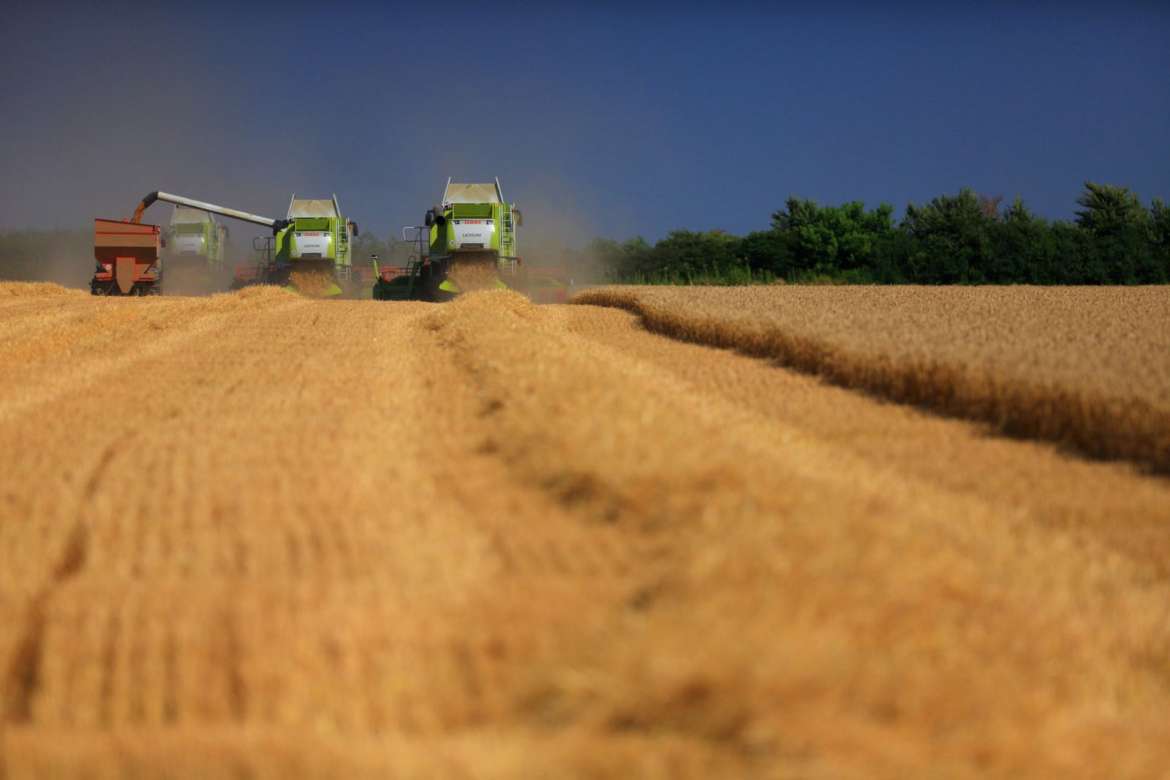 © Romulić & Stojčić
© Romulić & Stojčić
Croatia agriculture and food exports covered 69 percent of total imports this year, an increase of 8.11 percent. A total of 15.86 percent of all exports from the country come from the Croatia agriculture and food exports sector.
The most important item of production within the sector is corn, which accounts for 5.4 percent of all Croatia agriculture and food exports.
From January to September 2020, the most significant products in exports were: cereals (205.4 million Euros – a growth of a huge 62.6 million Euros); various food products (168.1 million Euros – including manufactured/processed foods like sauces, soups, ice cream, sugar products); fish and other seafood (a huge 147.4 million Euros – showing a growth of 14.5 million Euros); cereals, flour, starch or milk products; confectionery products, including chocolate (135.9 million Euros – a growth of 13.8 million Euros), and tobacco-related products (122.6 million Euros). TCN recently took a closer look at the successful and well-established Croatian chocolate industry
Other successes within 2020 Croatia agriculture and food exports were live animals, with an increase of 10.1 million Euros, and the residue and waste of the food industry, which is exported to go into prepared animal foods. The latter saw an increase of 8.6 million Euros.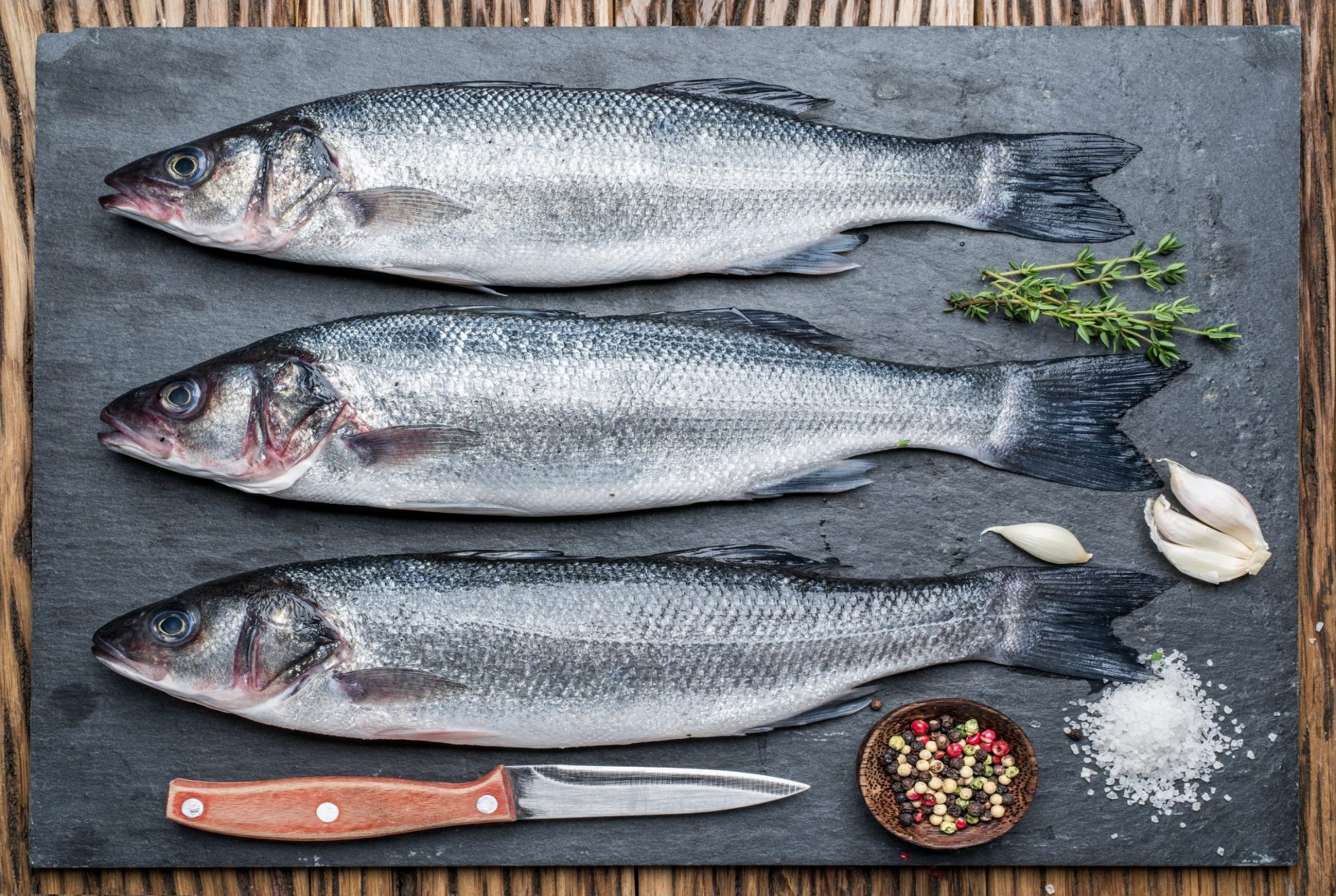
So far this year, Italy was one of the most important destinations for Croatia agriculture and food exports. Their total consumption of Croatia agriculture and food exports was 300.8 million Euros, which amounts to 17.76 percent of Croatia's exports in the sector. Croatia agriculture and food exports to Italy increased by 21.9 percent this year, while imports from Italy to Croatia in the same period was 263 million Euros, a decrease of 16.6 percent on 2019. This creates a surplus of 37.6 million Euros.
The most important Croatia agriculture and food exports to Italy are maize, wheat and soybeans, tobacco-related products, sea bass (brancin) and bream (orada).
For the last five years, Croatia agriculture and food exports top consumer has been Germany. For the past seven years, Germany has also been the country from which Croatia has imported the most.


